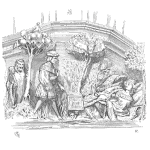
Practice Data Sets
Abstract
Chris and Fred discuss the ability to get ‘data sets’ to practice reliability analysis on! … sounds like a party …
ᐅ Play Episode
Your Reliability Engineering Professional Development Site
by Christopher Jackson Leave a Comment

Chris and Fred discuss the ability to get ‘data sets’ to practice reliability analysis on! … sounds like a party …
ᐅ Play Episode
by Christopher Jackson Leave a Comment

Chris and Fred discuss how short, 1-minute explainer videos could help reliability engineers … especially new ones!
ᐅ Play Episode
by Fred Schenkelberg Leave a Comment

There are many reasons or motivations to learn. From our boss asking us to solve a problem in an unfamiliar field of science, to simple curiosity.
When faced with an unusual failure mode, we need to learn what is causing the failure in order to solve the problem. When exploring a new material, we want to learn how it will fail in our design.
As reliability professionals, we are professional learners or should be.
Let’s take a look at a list of motivations that you may experience that prompt you to learn. When you review the past month or year, you will notice how much you learned.
When you feel one of these motivations, go with it. Learn, grow, and improve your capability as a reliability professional. Furthermore, you can foster these motivations with your team and colleagues, as well. [Read more…]
by Fred Schenkelberg Leave a Comment

… Or, reliable learning. One of the best things about reliability engineering is the never ending opportunity to learn. We work with materials, assembly processes, and people creating and maintaining products, machines, and systems. Other engineering disciplines tend to focus on one aspect of a design or process – mechanical engineers make allowances for the circuit board location and heat transfer requirements, yet do not word on the circuits themselves. Electrical engineers just the opposite, they focus on electronics and power and attempt to fit within the constants imposed by industrial designers. Maybe architects are close to the breadth of reliability engineering as they contribute the aesthetic and functional elements of a design, and consider the maintenance and longevity of the building. Yet, they are not involved with the actual aging and maintenance. [Read more…]